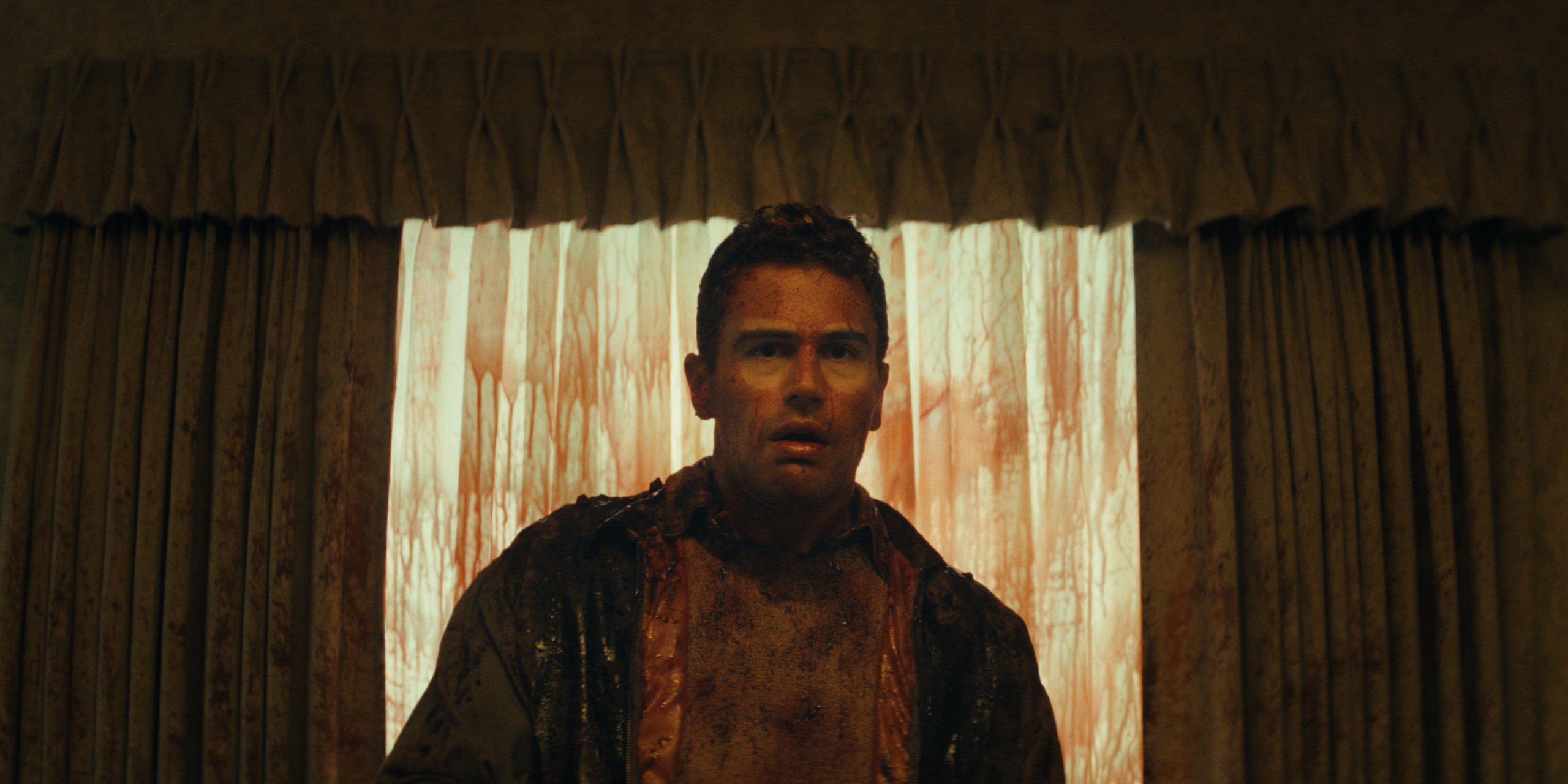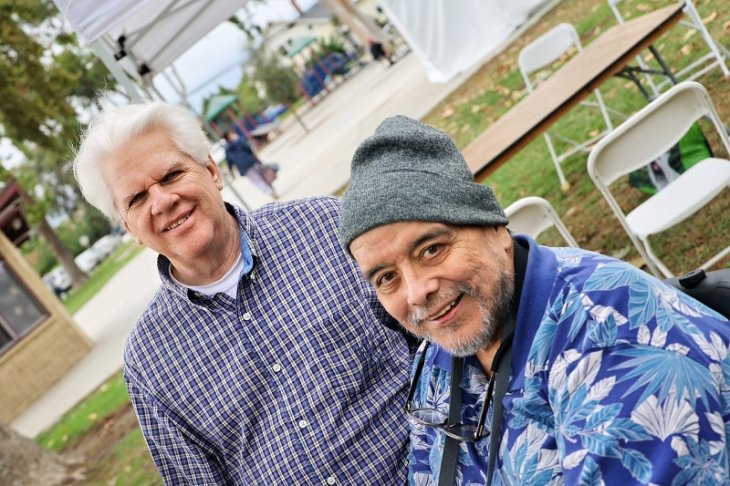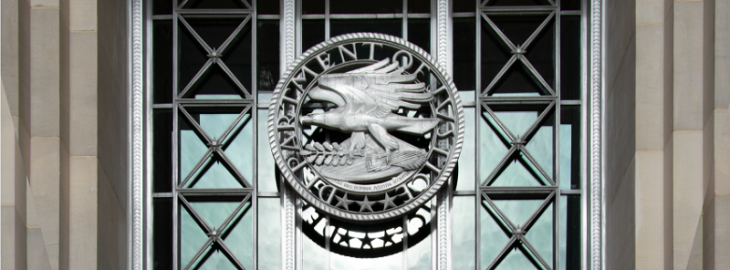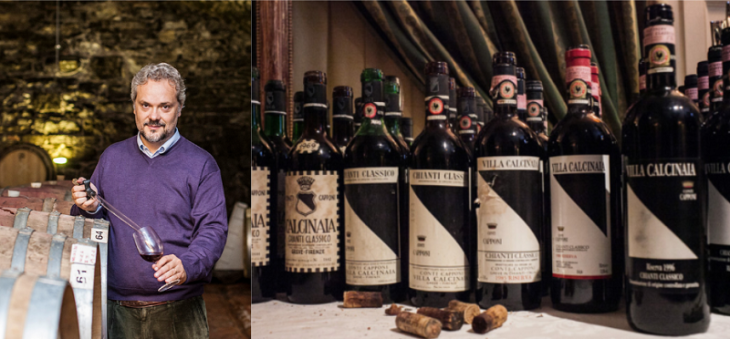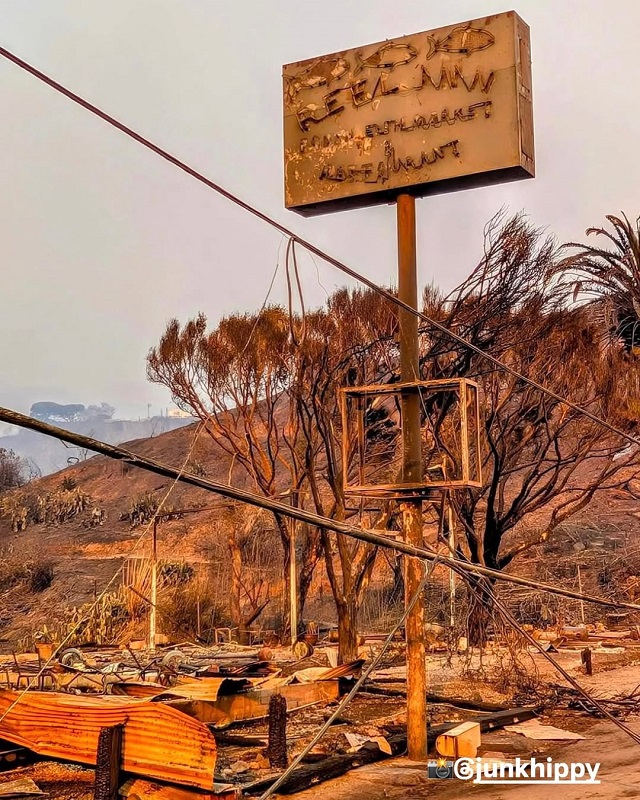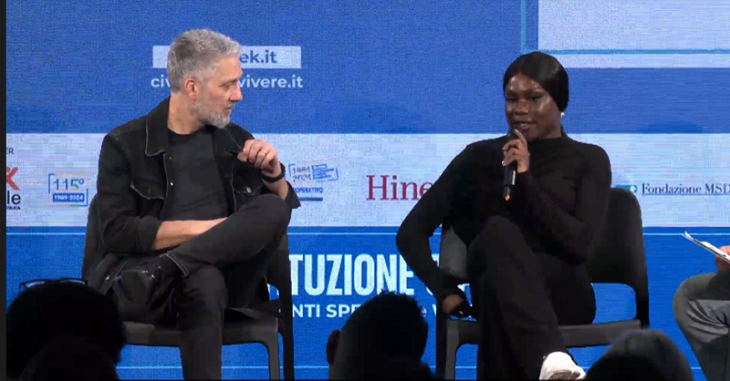By Dolores Quintana
Writer and director Osgood Perkins’ follow-up to his acclaimed 2024 film Longlegs is another animal entirely. The Monkey is gob-stoppingly hilarious to behold and filled with existential thoughts about life and death. Even though The Monkey is brimming with bloody carnage and festive annihilation, it struck me as a very personal film. One that grapples with life’s basic unfairness and everyday terror that we all sublimate to survive. How does one deal with death, especially when it claims everyone you love? How does one live?
Poor Chip.
It is a film-length expansion of the already scary short story by Stephen King that had the same name. I have to be honest and say that the short story actually scared me pretty badly when I read it much too early as a young child, but the thing that always stuck with me was the paperback cover illustration of that damned monkey.
While the film does explore the existential dread that comes with living, it is truly more of a comedy with exceptionally gruesome gore. However, Perkins, a master of tone, has managed to make the deeply unsettling and horrendously creative deaths float lightly on the screen rather than be weighted down with sturm and drang.
You may never see so many deaths enacted before your eyes seem quite so, er, life-affirming? Yes, it is life-affirming. Osgood Perkins is an incredible talent, and this is one of the best Stephen King adaptations ever made because it understands the source material, including King’s macabre sense of humor, and adds to the story, enriching it with characters that compel you to keep watching. Those have always been King’s greatest strengths as a writer: his characters and the interesting side tales that he spins and Perkins has matched his talents.
The film stars an admirable cast, including Theo James in a dual role, Tatiana Maslany, Christian Convery, Colin O’Brien, Rohan Campbell, Sarah Levy, Adam Scott, and Elijah Wood. All of the actors work beautifully well while waiting for their assorted fates. I don’t want to spoil the deaths, but the actors make sure that they remain memorable, even with the smallest amounts of screen time, so that you, the audience member, feel their absence.
Even when characters fundamentally misunderstand why a character is gone, there’s a whisper of the real reason that is just out of reach, almost tangible, tantalizingly held over their heads. Perkins is a gifted director on more than one level, probably because he is an actor himself and has cast actors capable of these subtleties and the work of comedy. One character has a moment of such roaring courage that you feel a pang for what might have been had other characters had the benefit of his presence. It also comes into play later when the actions of another character echo the first character.
The Monkey’s ritual is exceedingly well played. The lifting of the arm, the crack of the smile, and the animatronic artificiality are frightful but fascinating. You want to see The Monkey play its instrument, even while you gasp when it finally does. That is the see-saw of attraction and repulsion that lies at the center of The Monkey itself. You don’t want to feel its wrath, but don’t you just want to see it perform in some sick and secret way? People talk about “survivors’ guilt,” but no one ever talks about survivors’ relief. Maybe it is the same thing, cast as a more palatable idea, but aren’t you always a little relieved when it’s not your time?
The synopsis is delivered on screen in the most matter-of-fact and deadpan ways: “The monkey that likes killing our family is back.” But what Perkins has done that raises this film above many other King adaptations is that he has rooted it in mundane yet relatable reality. It is one of the most vicious sibling rivalries in film, and the comedic pain of being the kid who gets picked on constantly, no matter what he does, adds another dimension to farcical proceedings. That’s not fun, but Perkins makes it fun.
Let the good times roll.
But that is the core of the film. Life is what it is, and none of us can ever change our eventual fates no matter what we do, but what we do does matter. We never ask for what life chooses to dump on our heads, but how we manage the horror, with grace and humor or with anger and violence, makes us who we are, and since we are all interconnected, it shapes the fate of us all. How many hateful and vindictive people make others miserable, and what can the world be like when someone finds the strength to act out of love rather than fear?

